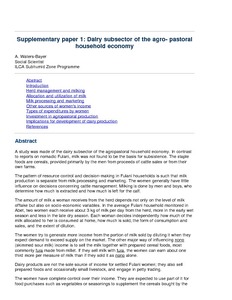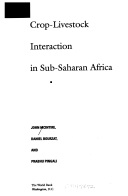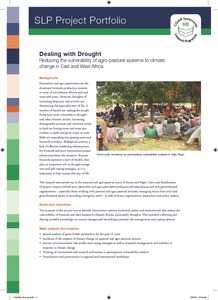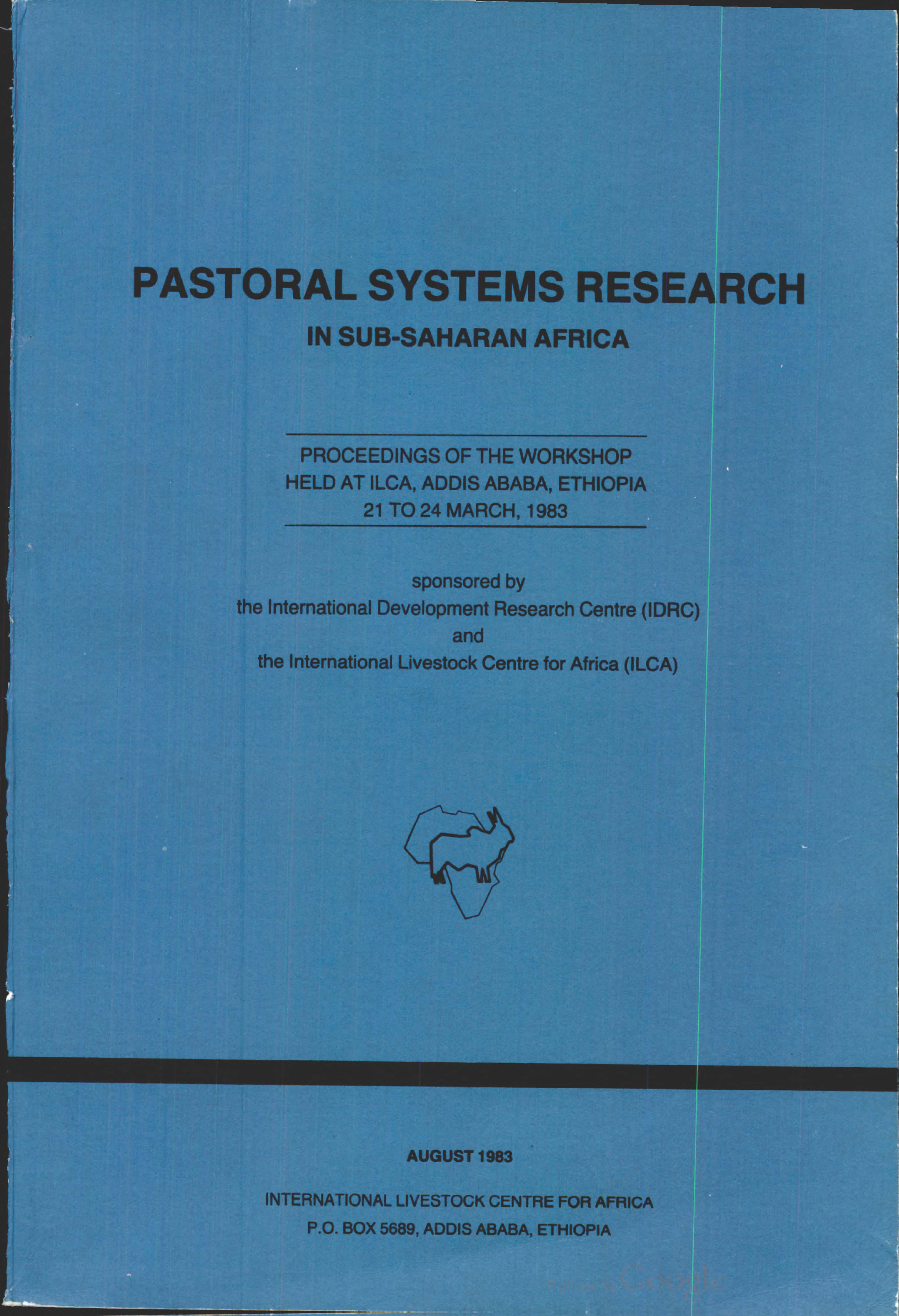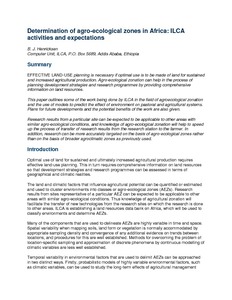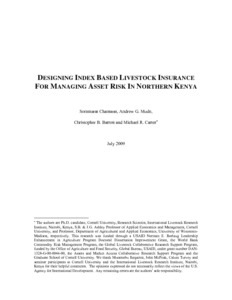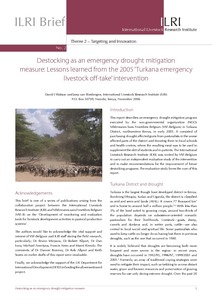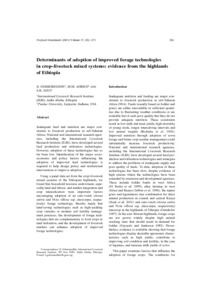Dairy subsector of the agropastoral household economy
Reports findings from a study of spheres of influence of men & women, esp. as they affect the dairy subsector, in Fulani agropastoral households in Nigeria; with particular reference to decision making & control over herd management; milking; allocation & utilisation of milk; milk processing & marketing; household income from milk sale; womens' household expenditure and investment in agropastoral production. Analyses implications of these for development of dairy production.
Crop-Livestock Interaction in Sub-Sarahan Africa
Describes interactions between cropping & livestock husbandry in an area of Fulani settlement arid farming groups at Abet and in a Fulani agropastoral system at Kurmin Biri, both in subhumid Nigeria, identifying the linkages as being feed from fallow land crop residues (CR) grazing and use of cattle manure in cropping w.
Design and testing procedures in livestock systems research: An agro-pastoral example
Indicates factors that must be considered when designing pastoral systems research, esp. the need to maintain complementantrity among various types of research; the need for policy orientation when carrying out research; and setting up of priorities & opportunities. Includes case examples from work carried out by the ILCA subhumid programme.
Determination of agro-ecological zones in Africa: ILCA activities and expectations
Outlines some of the work being done by ILCA in the field of agroecological zonation and the use of models to predict the effect of environment on pastoral and agricultural systems. Includes plans for future developments and the potential benefits of the work.
Designing index based livestock insurance for managing asset risk in northern Kenya
This article describes a novel index-based livestock insurance (IBLI) product piloted among pastoralists in Northern Kenya, where insurance markets are effectively absent and uninsured risk exposure is a main cause of poverty. We describe the methodology used to design the contract and its underlying index of predicted area-average livestock mortality, established statistically using longitudinal observations of household-level herd mortality fit to remotely sensed vegetation data.
Designing index based livestock insurance for managing asset risk in northern Kenya
This paper describes a novel effort at developing index-based insurance for locationaveraged livestock mortality as a means to fill an important void in the risk management instruments available to protect the main asset of pastoralists in the arid and semi-arid lands of Kenya, where insurance markets are effectively absent and uninsured risk exposure is a main cause of the existence of poverty traps.
Destocking as an emergency drought mitigation measure: lessons learned from the 2005 'Turkana emergency livestock off-take' intervention
This report describes an emergency drought mitigation program executed by the non-governmental organization (NGO) Vétérinaires Sans Frontières Belgium (VSF-Belgium) in Turkana District, northwestern Kenya, in early 2005. It consisted of purchasing drought-affected goats from pastoralists in the worse affected parts of the district and donating them to local schools and health centres, where the resulting meat was to be used to supplement the diet of students and in-patients.
Determinants of adoption of improved forage technologies in crop-livestock mixed systems: Evidence from the highlands of Ethiopia
Inadequate feed and nutrition are major constraints to livestock production in sub-Saharan Africa. National and international research agencies, including the International Livestock Research Institute (ILRI), have developed several feed production and utilisation technologies. However, adoption of these technologies has so far been low. Identification of the major socio-economic and policy factors influencing the adoption of improved feed technologies is required to help design policy and institutional interventions to improve adoption.
Determinants of migration and environmental spillovers of IBLI
Determination des zones agro-ecologiques d'Afrique: travaux et projets du CIPEA
Outlines some of the work being done by ILCA in the field of agroecological zonation and the use of models to predict the effect of environment on pastoral and agricultural systems. Includes plans for future developments and the potential benefits of the work.


